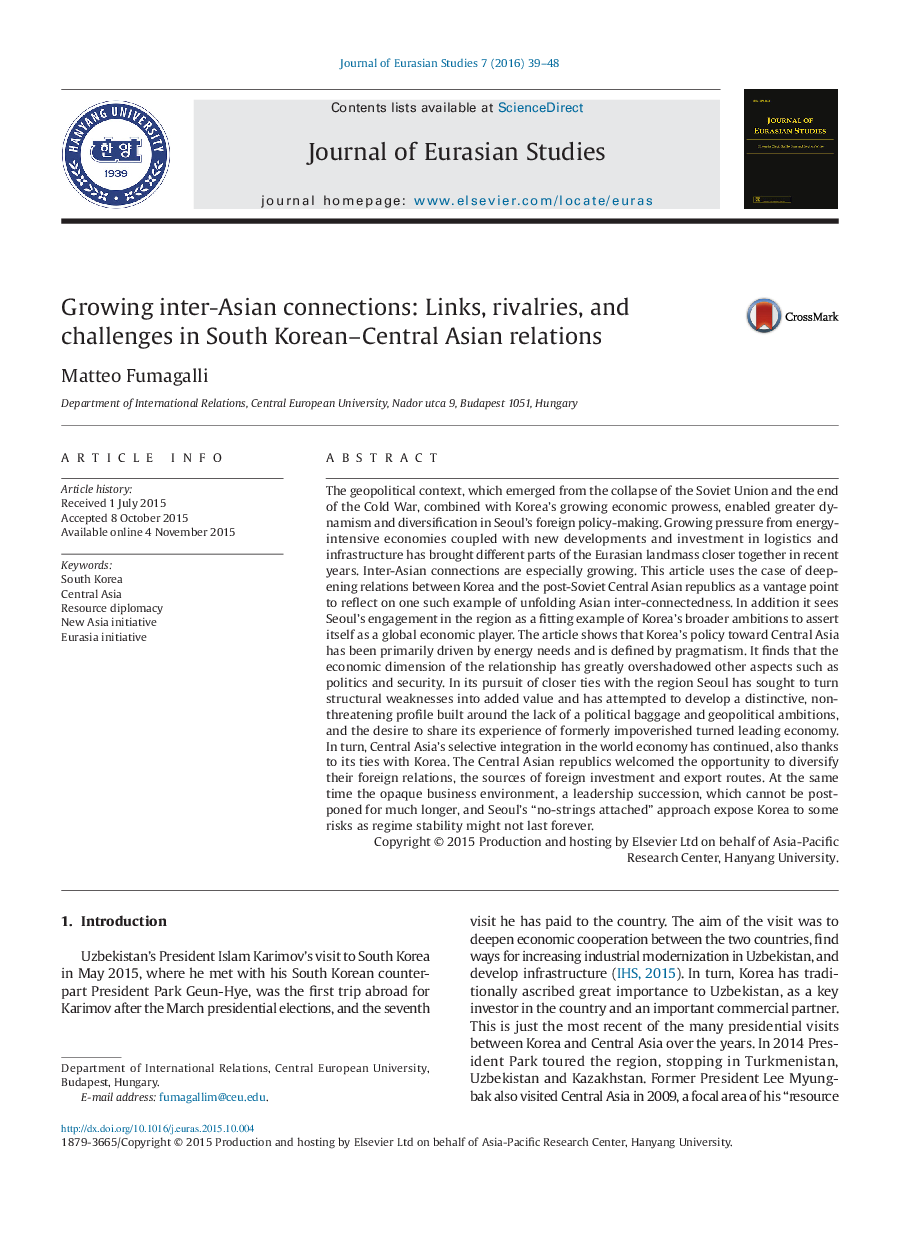| کد مقاله | کد نشریه | سال انتشار | مقاله انگلیسی | نسخه تمام متن |
|---|---|---|---|---|
| 1127178 | 954747 | 2016 | 10 صفحه PDF | دانلود رایگان |
• The post-Cold War geopolitical environment enabled inter-Asian cooperation.
• Korea's multi-pronged approach relied on aid, trade, investment, and public diplomacy.
• Korea ascribed priority to relations with Uzbekistan and Kazakhstan.
• Seoul's engagement in Central Asia has been driven by pragmatism.
• Central Asia welcomed Korea's interest as it allowed foreign policy diversification.
The geopolitical context, which emerged from the collapse of the Soviet Union and the end of the Cold War, combined with Korea's growing economic prowess, enabled greater dynamism and diversification in Seoul's foreign policy-making. Growing pressure from energy-intensive economies coupled with new developments and investment in logistics and infrastructure has brought different parts of the Eurasian landmass closer together in recent years. Inter-Asian connections are especially growing. This article uses the case of deepening relations between Korea and the post-Soviet Central Asian republics as a vantage point to reflect on one such example of unfolding Asian inter-connectedness. In addition it sees Seoul's engagement in the region as a fitting example of Korea's broader ambitions to assert itself as a global economic player. The article shows that Korea's policy toward Central Asia has been primarily driven by energy needs and is defined by pragmatism. It finds that the economic dimension of the relationship has greatly overshadowed other aspects such as politics and security. In its pursuit of closer ties with the region Seoul has sought to turn structural weaknesses into added value and has attempted to develop a distinctive, non-threatening profile built around the lack of a political baggage and geopolitical ambitions, and the desire to share its experience of formerly impoverished turned leading economy. In turn, Central Asia's selective integration in the world economy has continued, also thanks to its ties with Korea. The Central Asian republics welcomed the opportunity to diversify their foreign relations, the sources of foreign investment and export routes. At the same time the opaque business environment, a leadership succession, which cannot be postponed for much longer, and Seoul's “no-strings attached” approach expose Korea to some risks as regime stability might not last forever.
Journal: Journal of Eurasian Studies - Volume 7, Issue 1, January 2016, Pages 39–48
